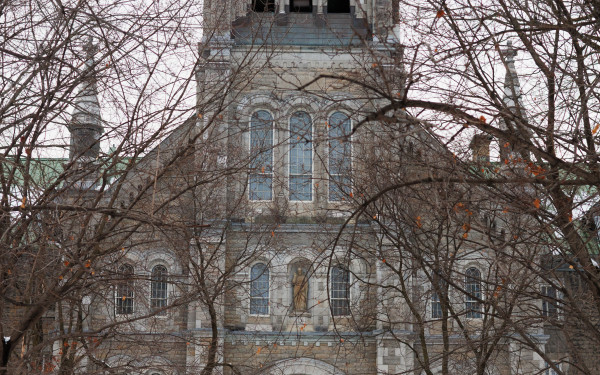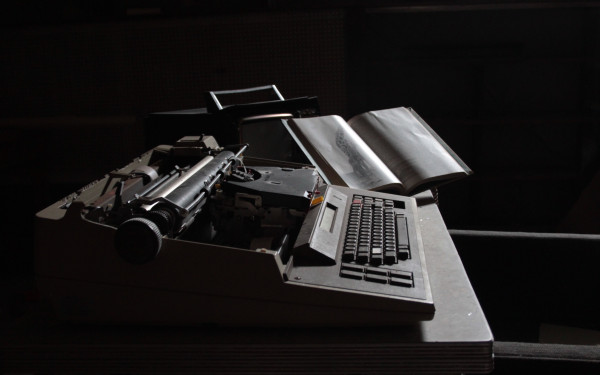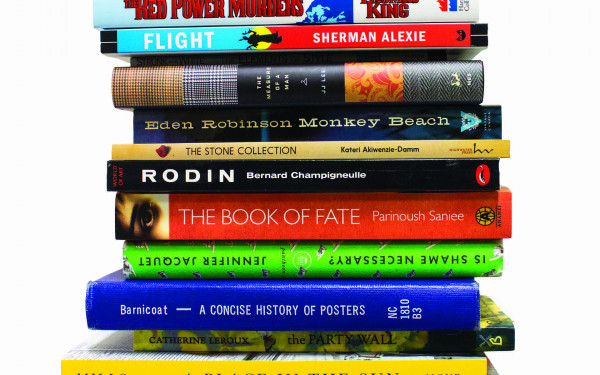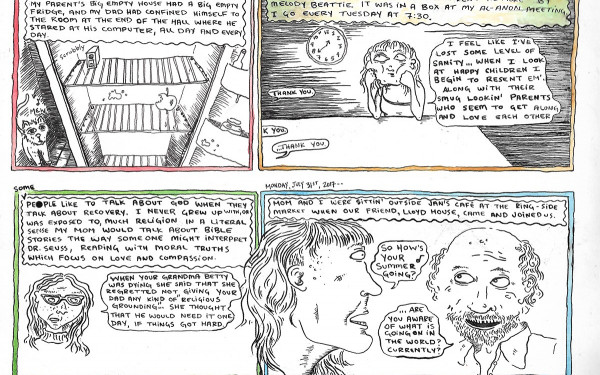Bringing LGBTQ Authors Out of the Darkness
Meet the Concordia Library’s First Researcher in Residence
Students are still filling up the Concordia Library these days but it isn’t necessarily for the same reason as they used to.
It seems that university libraries are more commonly know as study spaces, places for one to be surrounded by the quiet hum of computers, the shuffling of pages and the burning smell of exhausted minds.
Among the numerous special literature collections that the Concordia libraries offer, hidden and preserved away from the spotlight, sits a pile of treasures with no names attached to them. The names of authors of these writings have been kept in the dark for many years.
“Until the end of the nineteenth century, anonymity was really common, but afterwards, it becomes really rare,” said Emily Kopley, the library’s first researcher in residence.
“So the question to answer is ‘Why were some authors afraid to attach their names to their writings?’” she said.
Kopley found herself at Concordia after a journey through Ivy League research and curiosity. With an undergraduate degree in English from Yale in one hand and a PhD from Stanford in the other, Kopley sailed the water of English academia at an almost unbelievably smooth pace.
“Emily has a fantastic record, she is a fantastic scholar,” said Lorie Kloda, one of the associate librarians involved in the project.
“Her research is really interesting because while it overlaps with [that of the] librarians, it isn’t particularly in the area of library studies. It offers a lot of opportunities for collaboration with librarians but also members of the faculty.”
But before taking on this yearlong project, Kopley was a bright-eyed, frizzy haired undergrad with an eye for books. She recalled the archives of Yale with a smile, the wonder of one of the world’s most extensive and rich libraries still presents.
“I worked at the rare book library there,” she shared. “I was thrown in, very generously, to work with American archives. It kind of spoiled me.”
Kopley’s new project that she is taking on at Concordia is an interesting one. Writing under a fake name or using no name at all is an old technique hailing from a time when women could not be respected as writers or when being a writer at all just wasn’t that big of a deal.
But what Kopley is discovering in moving past that point in history, is that some writers continued to remain in the dark.
“What’s special about Concordia is the special collection of LGBT collections,” said Kopley. “
“The question is why were some authors afraid to attach their names to their writings?”— Emily Kopley
That is very relevant to anonymity because a lot of gay and lesbian authors published anonymously or with pseudonyms,” she explained. “This particular collection of LGBT literature is unique to Concordia. It is the most robust one in all of Canada.”
But it wasn’t always so controversial. Sometimes authors used anonymity to test the waters and see if their writing could get by on merit rather than by oftentimes-famous family name. Kopley tells the story of three siblings, all writers, all anonymous.
“I suspect that they all shared the motive of wanting to distance their creative selves from their famous father [a British architect],” she explained. “They probably wanted to be read without familial associations, and also did not want to risk injuring their father’s reputation.”
But for those authors taking on tricky subjects, the consequences could have been dire. For American and British authors of the twentieth century, exploring homosexuality in text could result in public shaming, loss of employment or even imprisonment, explained Kopley.
“Writers about the gay and lesbian experience, writers about the African American experience wrote anonymously because they have something to hide or something shameful to tell—but their stories are still valuable,” she said.
Up until now, in 2017, not a lot of research had been done to restore credit to the people that spent most of their professional writing careers in hiding. That work, Kopley explained, is not impossible.
“It’s actually not that hard to find out who these people are. Often after these authors out themselves or are revealed after their death,” she explained. “The mystery is less who they were and more why they were anonymous.”
As part of Concordia’s attempt to double its research, Kopley plans to dedicate the next year delving into the lives of those who wrote anonymously and strove despite public scrutiny to share their stories.
She explained that she plans on sharing her finding later on in conferences with the student body and private sessions with faculties.
And in the process, she hopes to shed a little light on the LGBTQ experience, from a time that was hidden in the dark.

_900_600_90.jpg)





